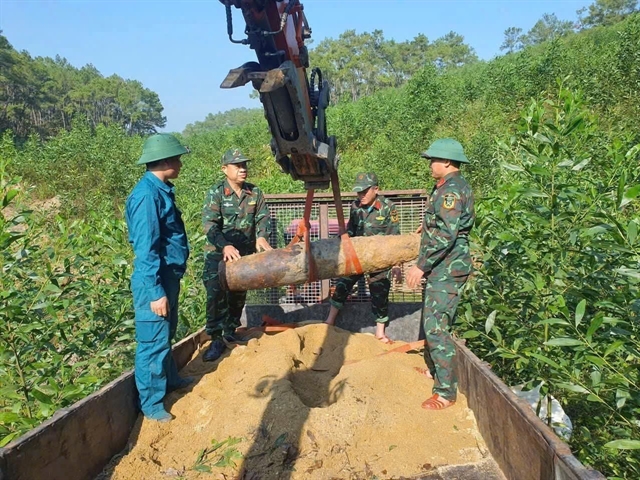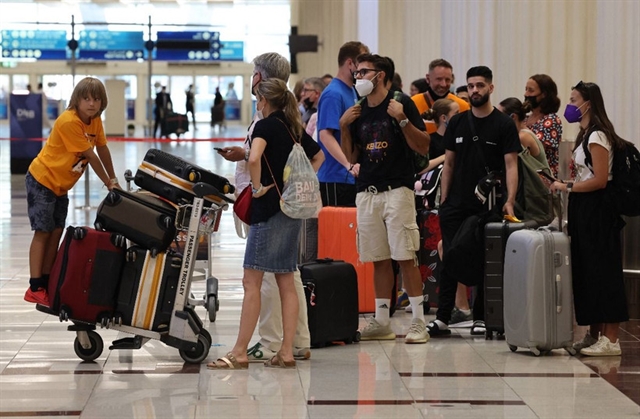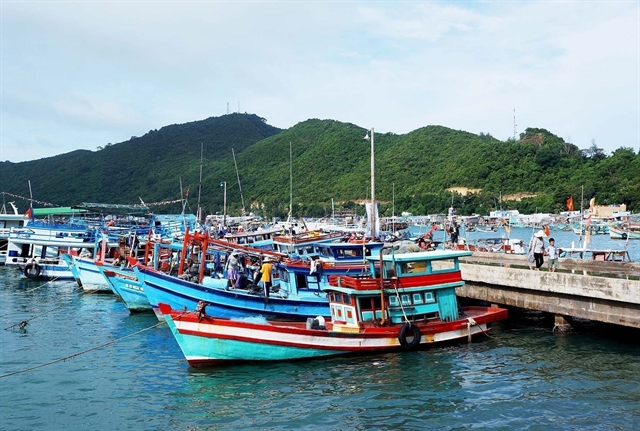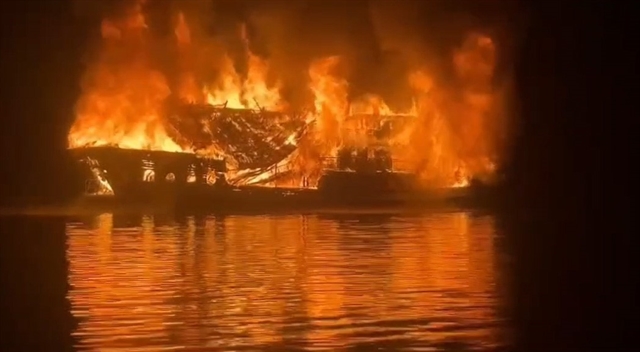 Society
Society

 |
| Fishing boats dock at the An Sơn Commune fishing port in Kiên Giang Province’s Kiên Hải District. — VNA/VNS Photo Hồng Đạt |
KIÊN GIANG — The Cửu Long (Mekong) delta province of Kiên Giang is banning the fishing of natural bivalve molluscs in its coastal waters for the rest of this year to protect their stocks.
The protected species include short-neck clams, hairy ark clams, blood cockles, and basket clams, according to the provincial Department of Agriculture and Rural Development.
Quảng Trọng Thao, its deputy director, said the ban applies to all fishing boats with a length of less than 12 metres, which usually fish near shore.
The department will not issue certificates of origin for short-neck clams during the ban period, and step up inspections of fishing, buying, preliminary processing, processing, preserving, transporting, and distributing bivalve molluscs.
The province is focusing on managing and protecting its aquatic resources.
Breeding
Besides catching them in the wild, the province also farms bivalve molluscs on more than 20,758ha, up 12 per cent from a year ago, according to the department.
Farmers breed them mostly in mud flats and mangrove forests in the coastal districts of Kiên Lương, Hòn Đất, An Minh, and An Biên.
An Biên District has a coastline of 22km and 5,200ha of mud flats suitable for breeding marine aquatic species.
Many households there have become wealthy from breeding blood cockles.
Nguyễn Văn Vui of Nam Thái Commune, who has bred them for 15 years and has a total of 300ha, said the weather is favourable this year and he expects to have a good harvest.
Blood cockles are easy to breed and have steady demand, he said.
His produce has been rated three-star under the national “One Commune, One Product” programme and fetches VNĐ100,000 (US$4.2) per kilogramme (for blood cockles of the size 80 to a kilogramme), he said.
He expects to earn VNĐ5.3 billion ($225,000) this year, he said.
The commune has 2,065ha of mud flats which are leased by 97 local households for farming blood cockles, according to the Nam Thái People’s Committee.
Huỳnh Văn Thanh, its deputy chairman, said the commune’s bridges and roads used to be in poor shape and houses dilapidated.
Marine aquaculture, especially farming of blood cockles, has improved locals’ lives enormously, and they have since built large houses and contributed money to upgrading the bridges and roads, facilitating transportation and trading, he added.
Trang Minh Tú, head of the An Biên Bureau of Agriculture and Rural Development, said the district has surveyed coastal areas and their mangrove forests and mud flats to adopt measures for fostering the commercial breeding of blood cockles.
They include zoning farming areas, doing aquaculture extension work, providing breeding technologies to farmers, developing logistics services, providing soft loans and securing outlets.
The district plans to develop blood cockle breeding in combination with eco-tourism since this model is gaining popularity.
Tourists visit breeding areas to see how the farms operate and enjoy food made from them. — VNS




